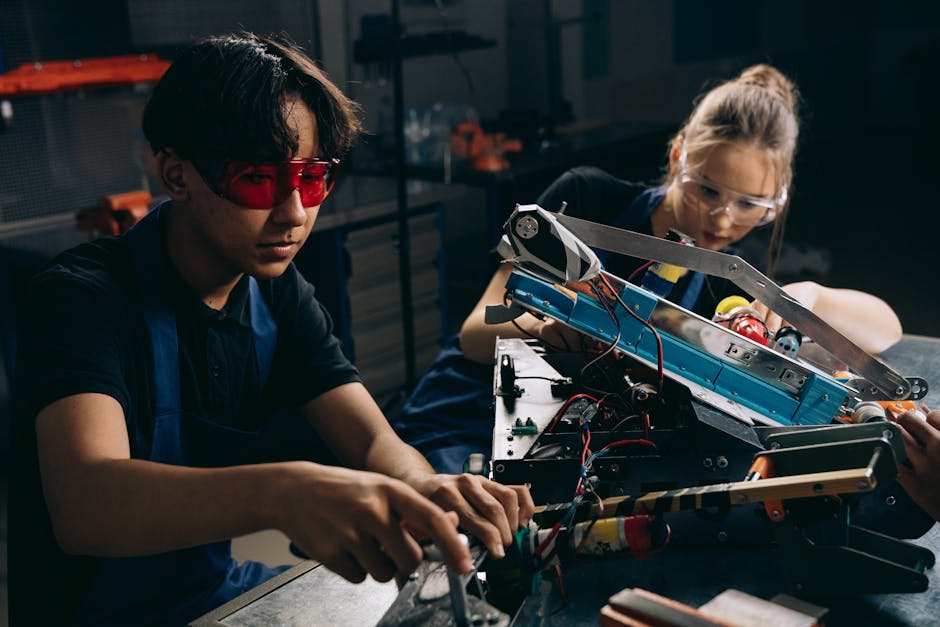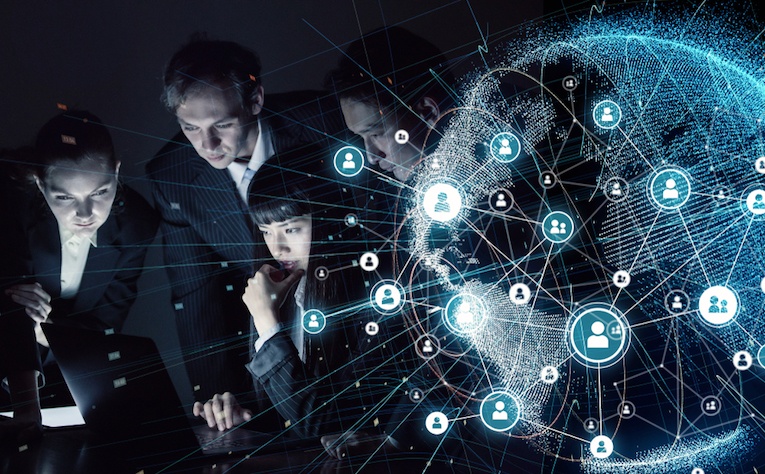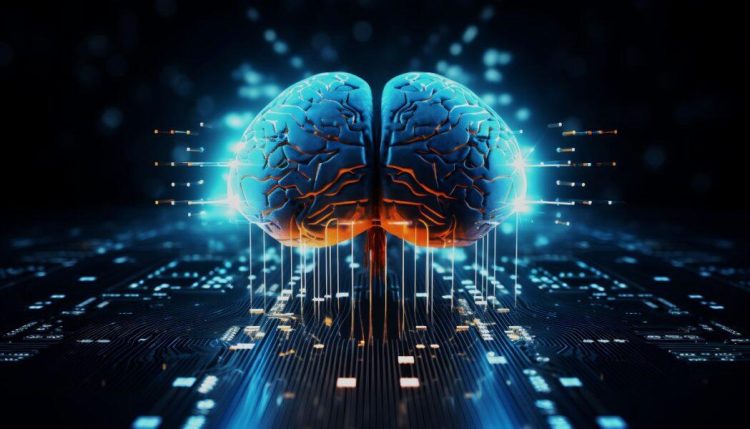In a world where Siri tells you where to find your nearest slice of pizza and robots are vacuuming our floors while we binge-watch Netflix, it’s safe to say that artificial intelligence has made quite the splash in modern society. But what exactly is the impact of this futuristic technology on our everyday lives? Buckle up, because we’re diving into the wild world of robots, algorithms, and the unpredictable chaos they bring to the table. Let’s explore just how AI is reshaping the very fabric of society as we know it.
Key Developments in AI Technology
In the world of AI, there have been some truly mind-boggling developments that are changing the way we think about technology. One of the most exciting breakthroughs is the creation of self-learning algorithms that can adapt and evolve on their own. Imagine a computer that can go from knowing nothing to playing chess like a grandmaster in a matter of hours! It’s like the AI version of a prodigy child, but without the messy diapers.
Another key development in AI technology is the rise of virtual assistants like Siri and Alexa. These digital helpers can do everything from ordering pizza to predicting the weather, all while never getting tired or needing a coffee break. It’s like having a personal butler at your beck and call 24/7, minus the snooty attitude and fancy accent.
But perhaps the most fascinating development in AI technology is the merging of human brains with artificial intelligence. Scientists are now experimenting with brain-computer interfaces that allow people to control machines using just their thoughts. It’s like having telekinesis powers, but instead of moving objects with your mind, you’re controlling a robot with your brainwaves. Who needs superhero movies when reality is this cool?

integration-of-ai-in-various-industries”>Integration of AI in Various Industries
Who would have thought that robots would soon take over the world? Well, not exactly, but they are definitely making their presence known in various industries. From healthcare to finance, AI is slowly but surely integrating itself into our daily lives without us even realizing it.
Take the healthcare industry, for example. With AI-powered diagnostic tools, doctors can now diagnose illnesses more accurately and efficiently. Plus, with the help of AI, surgeries are becoming less invasive and more successful. It’s like having a virtual assistant in the operating room!
And let’s not forget about the entertainment industry. AI algorithms are now being used to predict box office hits and help filmmakers create blockbuster movies. Who knew that robots had such good taste in films?
Whether it’s in transportation, marketing, or even agriculture, AI is slowly but surely taking over. So, the next time you interact with a chatbot or receive personalized recommendations online, just remember - it’s all thanks to the power of artificial intelligence.

Challenges and Ethical Concerns Surrounding AI
So you’ve heard about AI, huh? It’s not all sunshine and rainbows. There are some challenges and ethical concerns that come with this whole artificial intelligence thing. Let’s dive into some of the juiciest ones, shall we?
First up, we’ve got the issue of bias in AI algorithms. These sneaky little algorithms can pick up biases from their creators, resulting in unfair decisions. Imagine a robot deciding who gets a promotion based on outdated stereotypes – not cool, right?
Another challenge is the potential loss of jobs due to automation. If robots start taking over all the boring, repetitive tasks, what will us humans do all day? It’s a real head-scratcher. And let’s not forget about privacy concerns – AI systems often collect vast amounts of personal data, leaving us vulnerable to all sorts of shenanigans.
But hey, it’s not all doom and gloom! With some proper guidelines and oversight, we can tame the AI beast and make sure it’s used for good and not evil. Let’s keep our eyes peeled, our wits sharp, and our sense of humor intact as we navigate this brave new world of artificial intelligence.

Impact of AI on Employment and Workforce
Have you ever wondered what the future holds for employment and the workforce in the age of AI? Well, let me tell you, things are about to get interesting!
With the rise of artificial intelligence, many jobs are at risk of being taken over by robots and software. But fear not, humans! There are still plenty of ways to outsmart the machines and secure your spot in the workforce.
Here are a few ways AI is shaking up the job market:
- Automation: Tasks that were once done by humans are now being automated, leaving many workers wondering if their jobs are next on the chopping block.
- Adaptation: Those who embrace AI and learn to work alongside it will thrive in the new world of work, while others may find themselves left behind.
So, whether you’re worried about losing your job to a robot or excited about the possibilities AI brings, one thing is for sure – the impact of AI on employment and the workforce is here to stay!

AI in Healthcare: Revolutionizing the Industry
AI in healthcare is like hiring a superhero to fight crime: it’s fast, efficient, and can predict the future! Thanks to the power of artificial intelligence, the healthcare industry is experiencing a revolution like never before. From diagnosing illnesses to developing personalized treatment plans, AI is changing the game in healthcare.
Imagine a world where doctors never have to worry about misdiagnosing a patient. With AI, healthcare providers can access a wealth of data and analyze it in lightning speed to come up with accurate diagnoses. It’s like having a supercomputer in your pocket, ready to assist you at a moment’s notice!
Not only is AI helping with diagnosing illnesses, but it’s also revolutionizing the way treatments are developed. By analyzing massive amounts of data, AI can suggest personalized treatment plans tailored to each individual patient’s needs. It’s like having a personal healthcare assistant who knows you better than you know yourself!
So, the next time you visit the doctor’s office, remember that behind the scenes, AI is busy revolutionizing the healthcare industry. From predicting diseases to developing personalized treatment plans, artificial intelligence is truly the superhero the healthcare industry needs!
The Role of AI in Enhancing Customer Experience
AI, the magic wand of the tech world, is here to revolutionize the way we interact with customers. By incorporating AI into customer experience strategies, businesses can create personalized and seamless interactions that leave customers feeling satisfied and valued.
With AI, companies can analyze vast amounts of data to understand customer preferences, behavior, and trends. This enables them to tailor their products and services to meet the specific needs of each customer, creating a truly unique and engaging experience.
Imagine a world where AI-powered chatbots can provide instant support and assistance to customers around the clock. No more waiting on hold, no more frustrating automated phone menus. Just quick and efficient service at the touch of a button.
AI also has the ability to predict customer needs and anticipate potential issues before they arise. By proactively addressing concerns and offering solutions, businesses can build trust and loyalty with their customers, ensuring repeat business and positive word-of-mouth.
Future Implications of AI Advancements
As AI continues to advance at lightning speed, we are left wondering what the future implications may hold. Will robots start demanding vacation days or filing complaints to HR? Who knows! But in all seriousness, here are some potential outcomes we may see:
1. More Efficient Workplaces: With AI taking on more tasks, humans may find themselves with more time to focus on creative and strategic efforts. Let’s just hope we don’t get too used to our robot colleagues doing all the heavy lifting.
2. Job Displacement: While AI advancements may create new job opportunities, they may also lead to the displacement of certain roles. Say goodbye to your friendly neighborhood barista – they’ve been replaced by a sleek coffee-making robot!
3. Ethical Dilemmas: As AI becomes more advanced, we may find ourselves facing complex ethical dilemmas. Is it okay to have a robot therapist or rely on AI to make life-altering decisions for us? Only time will tell.
FAQs
How is artificial intelligence influencing the job market?
Well, artificial intelligence is basically like that overachiever coworker who always shows up early, works efficiently, and makes everyone else look bad. It’s taking over repetitive tasks and jobs that don’t require much creativity or emotional intelligence. So, yeah, it’s kinda shaking things up a bit.
Is artificial intelligence making us lazier?
Oh, absolutely. I mean, why bother remembering anything when Alexa can tell you the answer in 0.2 seconds? And who needs to learn how to cook when you can just order dinner with a few taps on your phone? Basically, AI is enabling our laziness in the best possible way.
Are there any ethical concerns surrounding the use of artificial intelligence?
Well, duh. We’ve all seen those sci-fi movies where robots take over the world and humans become their minions. But in all seriousness, there are legitimate concerns about privacy, bias in algorithms, and just how much power we’re giving to machines. It’s like having a toddler play with a chainsaw – you just never know what could go wrong.
How is artificial intelligence shaping the future of healthcare?
Oh, it’s like having Dr. House on steroids. AI is helping doctors diagnose diseases quicker, personalize treatment plans, and even predict health outcomes. It’s basically like having a super-smart medical assistant who never forgets your appointment or prescribes the wrong medication.
Can artificial intelligence really improve our everyday lives?
Absolutely. From self-driving cars that prevent accidents to virtual assistants that make our lives easier, AI is like that friend who always has your back. Sure, there may be a few glitches here and there, but overall, it’s making our lives more convenient and efficient. Who needs a personal assistant when you have Siri, right?






